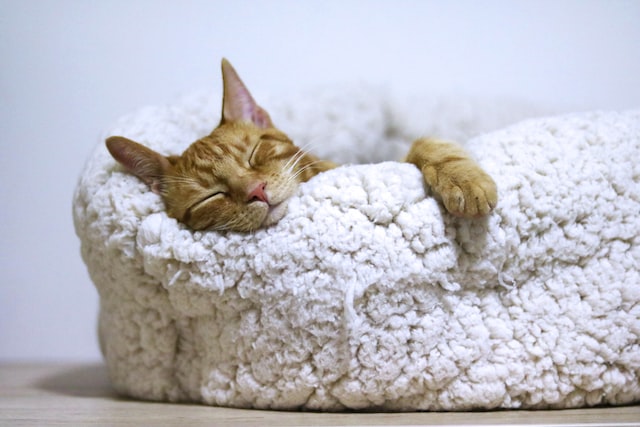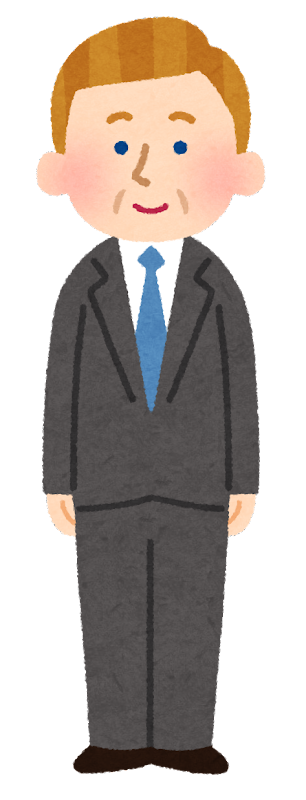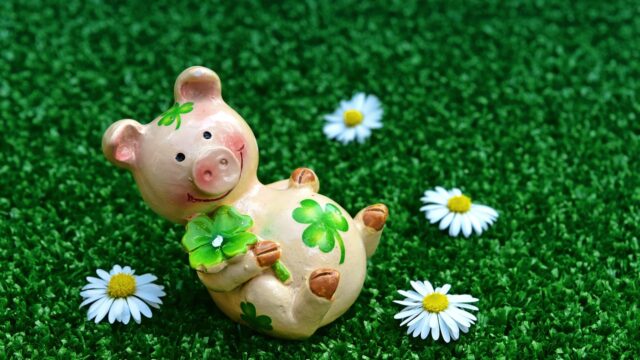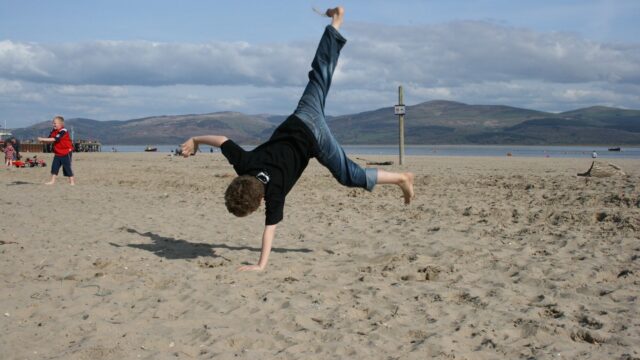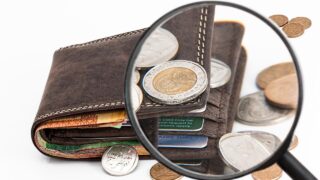ライフハックとしてではなく、英語学習にも極めて有用なのが、著名人が10分程度のプレゼンを行うTEDです。
TED Talksとは、あらゆる分野のエキスパートたちによるプレゼンテーションを無料で視聴できる動画配信サービスのことです。10年ほど前にサービスが開始されてから、政治、心理学、経済、日常生活などの幅広いコンテンツが視聴できることから人気を集めています。
RareJob English Lab
TEDは4000を超える膨大な数の動画があります。しかし慣れないうちは、動画の探し方や視聴のコツが分かりませんよね。この記事では、数多くのTEDを見てきた管理人(塩@saltandshio)が、心を揺さぶられたトークをあらすじと一緒にご紹介します。
ビジネス英会話を効率よく身につけたい方におすすめスクール
シェーン英会話
シェーンは1977年の創業以来、ネイティブ講師が英語を英語で教える「直接教授法」を採用しています。首都圏におけるスクール拠点数は、ネイティブ講師の英会話スクールでNo.1。駅から近いスクールが多いので通いやすく時間を有効に使えます。
スピークバディ パーソナルコーチング
1日1時間の短期集中トレーニングで、あなたの英語力向上をコーチが全力でサポートします。あなたの英語の世界が、劇的に変わります。
マット・ウォーカー:よりよい睡眠のための6つのヒント
すぐ眠りに就けるだけでなく、長く眠れたらいいのにと思いますか? 睡眠科学者のマット・ウォーカーが、夜にぐっすり眠ることができるように、室温や部屋の照明などのちょっとした工夫のしかたを教えてくれます(約5分)。Matt Walker / 6 tips for better sleep.
[PR]赤ちゃんの寝かしつけから大人まで、睡眠環境を整えるトトノエライト規則正しく
よりよい睡眠のための6つのヒントの1つ目は「規則正しく」です。同じ時間に寝て、同じ時間に起きるようにしましょう。
規則正しいことはとても大事で、睡眠を安定させてくれるし、睡眠の量と質の両方を改善してくれます。平日でも週末でも、よく眠れない夜があった時でも効果はあります。
Regularity is king, and it will actually anchor your sleep and improve both the quantity and the quality, no matter whether
it’s the weekday or the weekend or even if you’ve had a bad night of sleep.
マット・ウォーカーによると、脳の奥深くに24時間の時間を刻む時計が備わっており、その時計は規則正しく動くことで調子が良くなるそうです。これは、起床だけでなく就寝でも同じで、起床時間だけでなく就寝時間にもアラームを鳴らしてルーティン化してみてはと、アドバイスしています。
スマートフォンのアラームには、就寝時間をお知らせするアラームがついているのもあるので、使ってみるのも良いですね。
[PR]まずは無料カウンセリング”続けるため”の オンライン英語コーチ「スピークバディ パーソナルコーチング」室温
よりよい睡眠のための6つのヒントの2つ目は「部屋は涼しく」です。人は、暑すぎる部屋で寝るより、寒すぎる部屋の方が寝付きやすいことがわかっています。
実は、脳と身体は核心温度を摂氏1度あるいは 華氏2~3度下げないと、入眠したり睡眠を持続させたりできないのです。
It turns out that your brain and your body need to drop their core temperature by about one degree Celsius or around two to three degrees Fahrenheit in order to initiate sleep and then to stay asleep.
部屋の温度は寒いと感じるくらいの方が睡眠の質が上がると、マット・ウォーカーもアドバイスしています。
[PR]しちだの魔法ペンなら35日でバイリンガルに!楽天4部門1位の英会話!<七田式>暗さ
よりよい睡眠のための6つのヒントの3つ目は「暗さ」です。節電が促されているとはいえ、それでも現代の夜はとても明るくなりました。ですが、寝るには部屋を暗くする必要があります。それは、メラトニンというホルモンを分泌する必要があるからです。
メラトニンは健康な睡眠のリズムを規則正しく保ってくれます!
And melatonin helps regulate the healthy timing of our sleep.
寝る前の1時間はパソコンやタブレット、スマートフォンを見るのを避けて、部屋の照明も半分くらいの暗さにしてみると、それだけで眠くなるとマット・ウォーカーは言います。また、アイマスクや遮光カーテンも、メラトニンの働きを助けてくれます。
[PR]知って得する、知らないと損をする!すぐに役立つ相手に合った「伝え方」のコツ!眠くなければ寝室の外へ
よりよい睡眠のための6つのヒントの4つ目は「眠くなければ寝室の外へ」です。布団やベッドに入って、もし25分ほど経ってしまった場合は、一旦部屋から出でなにか別のことをするのを、マット・ウォーカーはすすめています。
これはなぜかというと、人間の脳は非常に物事を結びつけやすいからです。
ベッドでは目が覚めているものだと脳が学習してしまっているので、その結びつきを壊さなければなりません。
And the reason is because your brain is an incredibly associative device.
The brain has learned the association that the bed is this trigger of wakefulness, and we need to break that association.
ベッドから離れて別の事を行い、ふたたび眠たくなったらベッドに戻りましょう。そうすることで、しだいに脳がベッドは眠る場所だと学習してくれるようになります。
[PR]検定試験合格者累計140万人!スマホ対応☆国家資格ほか資格取得ならSMART合格対策講座アルコールとカフェインの影響
よりよい睡眠のための6つのヒントの5つ目は「アルコールとカフェインの影響」です。
大体の目安としては、午後以降はカフェインを摂取しないようにして、酔った状態で眠りに就かないのがいいでしょう。
So, a good rule of thumb here is to try to stay away from caffeine in the afternoon and in the evening and certainly try not to go to bed too tipsy.
アルコールがもたらす影響については、ダニエル・エイメンもTED Talksで話していましたね。
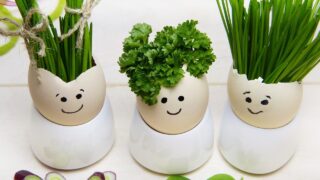
就寝前のルーティン
よりよい睡眠のための6つのヒントの6つ目は「就寝前のルーティン」です。私たちは、ベッドに潜り込んで明かりを消せば寝れるものだと思いがちです。
残念ながら、ほとんどの人にとって睡眠はそう簡単ではありません!
Well, unfortunately, sleep isn’t quite like that for most of us.
しっかりとした睡眠といえるまで脳が落ち着くには、じつは時間がかかります。せめて寝る20分前には電子機器から離れて、なにかリラックスできることをしましょうとマット・ウォーカーは言います。自分に合うリラックス法を見つけたら、ルーティン化すると良いでしょう。
[PR]「頭スッキリ」、今注目の加睡眠アミノ酸<スヤナイトα>まとめ:睡眠は生命維持装置
以上が、よりよい睡眠のための6つのヒントです。しかし、注意点があります。
もし睡眠関連疾患に悩まされていて、不眠症や睡眠時無呼吸などを経験しているなら、これらのヒントが必ずしも役に立つとは限りません。
The last thing I should note is that if you are suffering from a sleep disorder, for example, from insomnia or sleep apnea, then these tips aren’t necessarily going to help you.
スポーツチームのコーチは、プレーの改善点は指摘することが出来ますが、怪我を治すことは出来ません。そのためマット・ウォーカーも、睡眠関連で疾患がある場合は医師に相談してほしいとアドバイスしています。
睡眠の大切さはTED Talksで多くの著名人が話しています。ただ眠るだけでなく、睡眠の質を高めていけば、より私たちを元気にしてくれることでしょう。
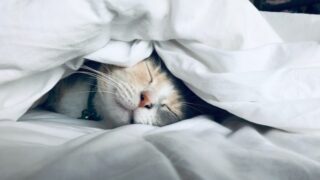


英語全文
We can all have a bad night of sleep and that’s perfectly normal, but how could we try to improve both the quantity and the quality of our sleep?
<全文を読む>▼クリック▼
The first tip is regularity. Go to bed at the same time and wake up at the same time. Regularity is king, and it will actually anchor your sleep and improve both the quantity and the quality, no matter whether it’s the weekday or the weekend or even if you’ve had a bad night of sleep. And the reason is because deep within your brain, you actually have a master 24-hour clock. It expects regularity and works best under conditions of regularity, including the control of your sleep-wake schedule. Many of us use an alarm to wake up but very few of us use a to-bed alarm, and that’s something that can be helpful.
The next tip is temperature. Keep it cool. It turns out that your brain and your body need to drop their core temperature by about one degree Celsius or around two to three degrees Fahrenheit in order to initiate sleep and then to stay asleep. And this is the reason that you will always find it easier to fall asleep in a room that’s too cold than too hot. So, the current recommendation is to aim for a bedroom temperature of around about 65 degrees Fahrenheit, or a little over 18 degrees Celsius. It sounds cold but cold it must be.
The next tip is darkness. We are a dark-deprived society and, in fact, we need darkness specifically in the evening to trigger the release of a hormone called melatonin. And melatonin helps regulate the healthy timing of our sleep. In the last hour before bed, try to stay away from all of those computer screens and tablets and phones. Dim down half the lights in your house. You’d actually be quite surprised at how sleepy that can make you feel. If you’d like, you can wear an eye mask or you can have blackout shades and that will help best regulate that critical sleep hormone of melatonin.
The next tip is walk it out. Don’t stay in bed awake for long periods of time. And the general rule of thumb is if you’ve been trying to fall asleep and it’s been 25 minutes or so, or you’ve woken up and you can’t get back to sleep after 25 minutes, the recommendation is to get out of bed and go and do something different. And the reason is because your brain is an incredibly associative device. The brain has learned the association that the bed is this trigger of wakefulness, and we need to break that association. And by getting out of bed, you can go and do something else. Only return to bed when you’re sleepy. And in that way, gradually, your brain will relearn the association that your bed is this place of sound and consistent sleep.
The fifth tip is something that we’ve actually already spoken about in detail in this series, which is the impact of alcohol and caffeine. So, a good rule of thumb here is to try to stay away from caffeine in the afternoon and in the evening and certainly try not to go to bed too tipsy.
The final tip: have a wind-down routine. I think many of us in the modern world, we expect to be able to dive into bed at night, switch off the light, and we think that sleep is also just like a light switch, that we should immediately be able to fall asleep. Well, unfortunately, sleep isn’t quite like that for most of us. Sleep, as a physiological process, is much more similar to landing a plane. It takes time for your brain to gradually descend down onto the firm bedrock of good sleep. In the last 20 minutes before bed or the last half an hour, even the last hour, disengage from your computer and your phone and try to do something relaxing. Find out whatever works for you and when you have found it, stick to that routine.
The last thing I should note is that if you are suffering from a sleep disorder, for example, from insomnia or sleep apnea, then these tips aren’t necessarily going to help you. If I was your sports coach, I could give you all of these tips to improve your performance, but if you have a broken ankle, it’s not going to make a difference. We have to treat the broken ankle first before we can get back to improving the quality of your performance. And it’s the same way with sleep. So, if you think you have a sleep disorder, just go and speak with your doctor. That’s the best piece of advice.
Where do we stand, then, in all of this conversation about sleep? Well, I think the evidence is clear. We can think of sleep almost like a life-support system. In fact, some may even call sleep a super power.
<閉じる>
\ ほかにも気になるトークが満載! /


